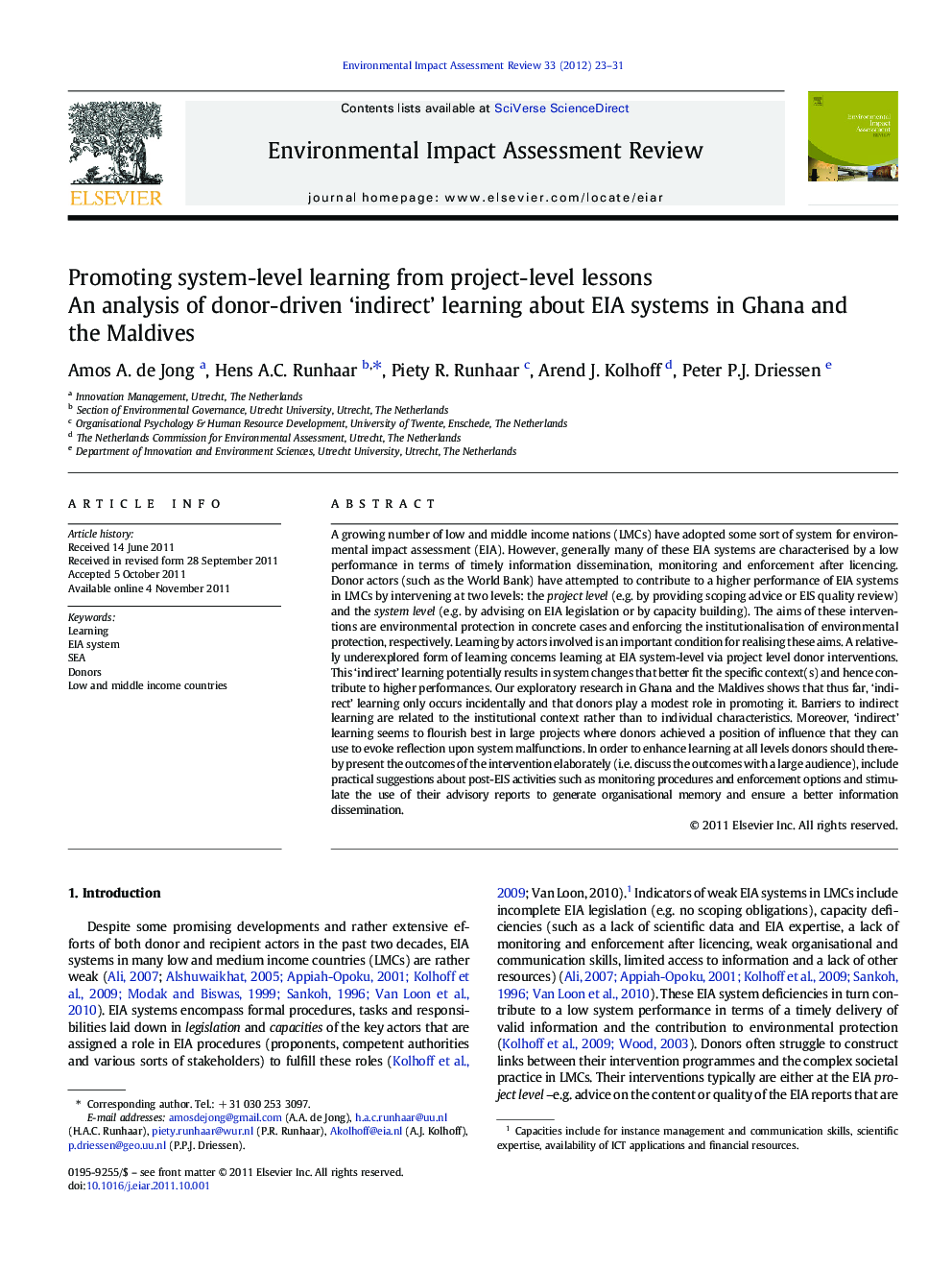| Article ID | Journal | Published Year | Pages | File Type |
|---|---|---|---|---|
| 1052862 | Environmental Impact Assessment Review | 2012 | 9 Pages |
A growing number of low and middle income nations (LMCs) have adopted some sort of system for environmental impact assessment (EIA). However, generally many of these EIA systems are characterised by a low performance in terms of timely information dissemination, monitoring and enforcement after licencing. Donor actors (such as the World Bank) have attempted to contribute to a higher performance of EIA systems in LMCs by intervening at two levels: the project level (e.g. by providing scoping advice or EIS quality review) and the system level (e.g. by advising on EIA legislation or by capacity building). The aims of these interventions are environmental protection in concrete cases and enforcing the institutionalisation of environmental protection, respectively. Learning by actors involved is an important condition for realising these aims. A relatively underexplored form of learning concerns learning at EIA system-level via project level donor interventions. This ‘indirect’ learning potentially results in system changes that better fit the specific context(s) and hence contribute to higher performances. Our exploratory research in Ghana and the Maldives shows that thus far, ‘indirect’ learning only occurs incidentally and that donors play a modest role in promoting it. Barriers to indirect learning are related to the institutional context rather than to individual characteristics. Moreover, ‘indirect’ learning seems to flourish best in large projects where donors achieved a position of influence that they can use to evoke reflection upon system malfunctions. In order to enhance learning at all levels donors should thereby present the outcomes of the intervention elaborately (i.e. discuss the outcomes with a large audience), include practical suggestions about post-EIS activities such as monitoring procedures and enforcement options and stimulate the use of their advisory reports to generate organisational memory and ensure a better information dissemination.
